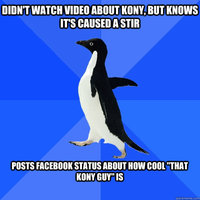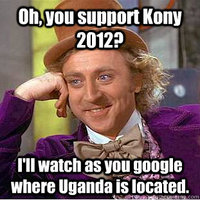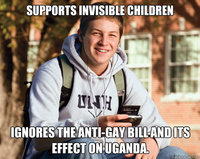by Neta Kligler-Vilenchik
The ideal of “Do It Yourself” is evident in many spaces, yet it is particularly resonant in the sphere of politics. Here, Doing It Yourself often means “making up your own mind” and “doing your own research”. These ideals are valuable to us, yet they are also entrenched in a specific vision of the good citizen: that of the informed citizen. The informed citizen is thought of as a rational individual, one who holds full information about different policy options and chooses among them, while bracketing out irrelevant factors like emotions. Yet it is important to realize that this is not only an ideal, but also one possible model of citizenship among others that have existed, historically and presently. Yet the dominance of the DIY citizen, the pressure to do it all on your own may suppress the voice and participation of those who feel that these are high barriers to meet.
This year, debates over informed citizenship became particularly heated around Kony 2012, the 30 minute documentary about the Ugandan warlord made by Invisible Children, which became the fastest-spreading video ever. As members of Civic Paths previously discussed, this film was particularly popular with young people, who were moved by the cause and spread it through their social networks.
As the film gained popularity, so did its critiques. Invisible Children was criticized for simplifying the message, for their “white savior” attitude, as well as about their own finances.
The critique I would like to focus on here, however, was the toward supporters of Invisible Children, those sharing the movie through their social networks. These mostly young people were frequently portrayed as supporting the issue without having done sufficient research, for violating the norms of the informed citizen. One way these critiques were presented was through the circulation of “image macros”, or internet memes.
Many of these memes present Kony 2012 supporters as completely clueless, posting about it without the most basic understanding of what it’s about:


Others refer more specifically to ignorance around Africa, implying that people are hypocritical when they “suddenly” care about Uganda:

This meme focuses on the idea of manipulation or gullibility, being told what to do. It expresses the idea that people were blindly “jumping on the Kony bandwagon”:

Some seem to set very high demands on what someone should know before they are “allowed” to post about Kony 2012, especially when we consider that this is a policy issue most young Americans have never heard about before:

The informed citizen ideal doesn’t mean you have to be a DIY citizen who cannot participate before having full information. Being knowledgeable is important, but there are different ways to become informed. One way to think about the informed citizen is through a collective intelligence model, where many people share their different pieces of information. Read through this lens, we can think about the collective conversation that evolved around Kony2012 as a positive one: it helped citizens learn more about an issue. Yet to achieve this, we need to refrain from shutting others down.
We all want to encourage youth civic engagement, and we want young citizens to be informed. But the ideal of the informed citizen shouldn’t be used as a minimum standard for participation. At a moment in which young people identified an issue that powerfully resonated with them, these memes–and a host of other media–told them they were not capable to participate and effectively shut them down.

